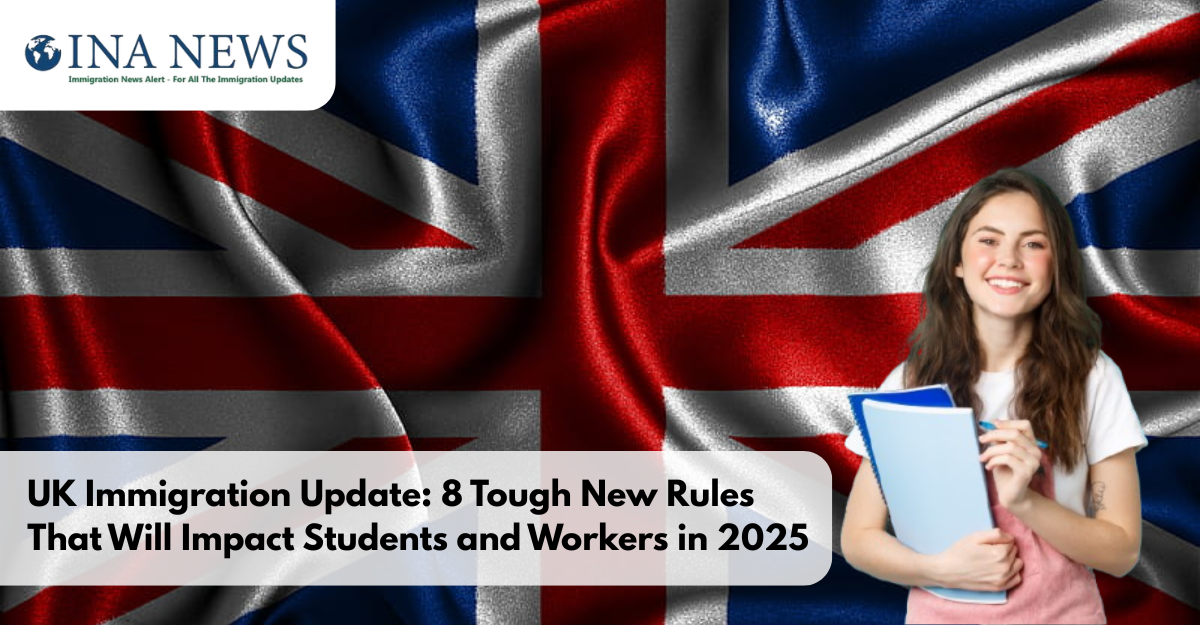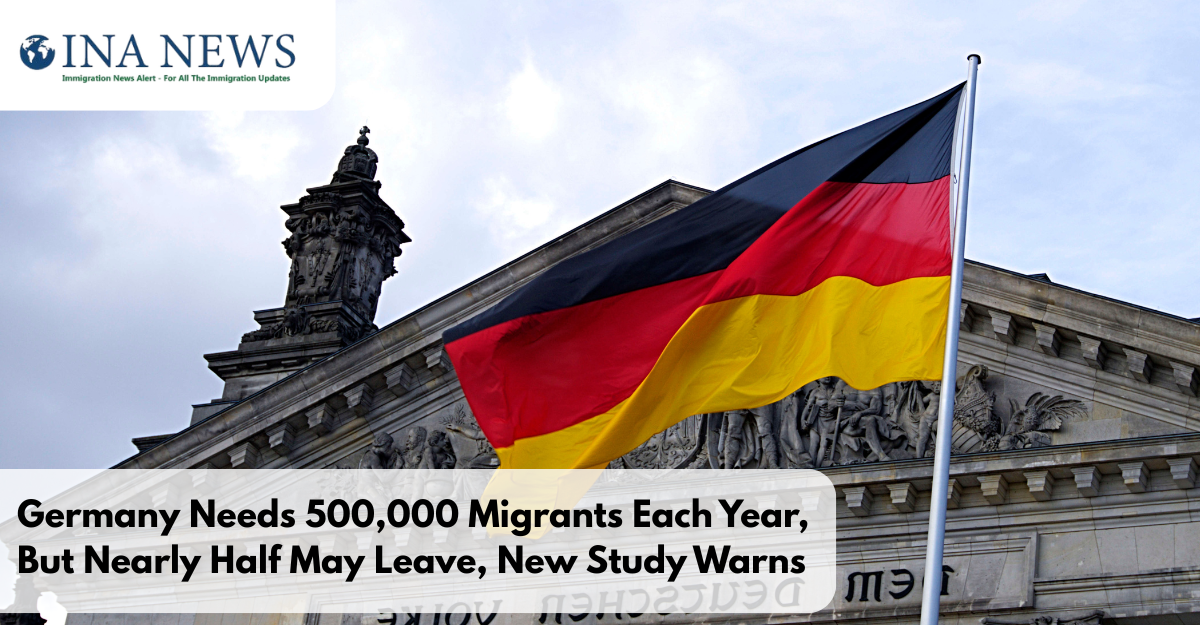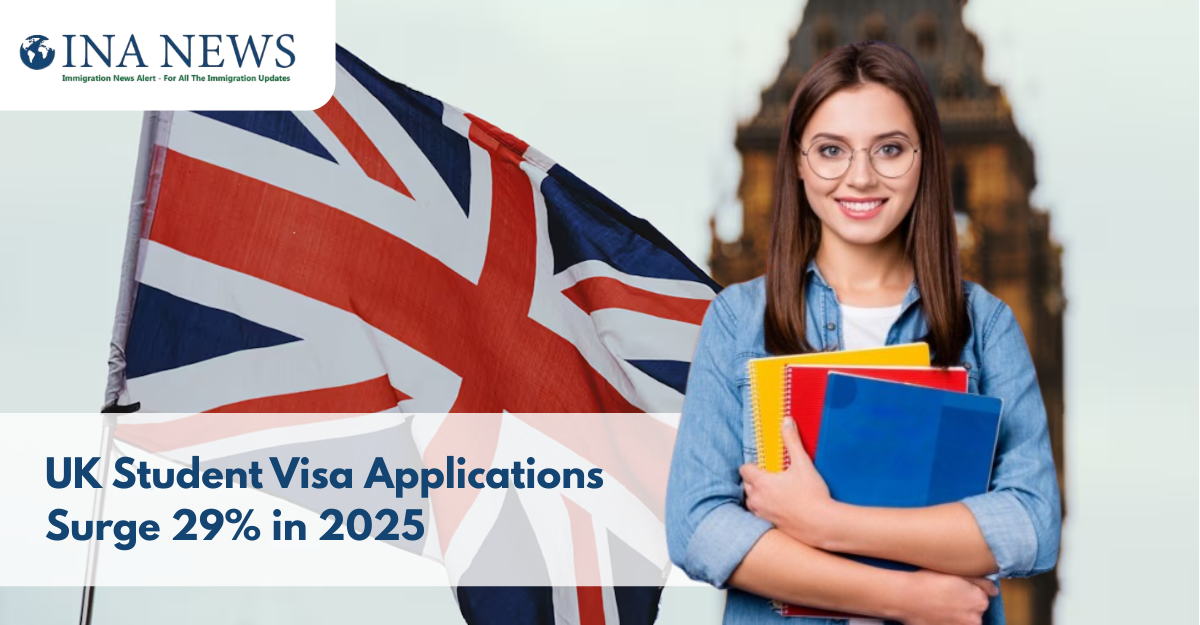The UK government is preparing to introduce a set of comprehensive immigration reforms in 2025, aiming to tighten visa eligibility and reduce net migration. In a policy document titled “Restoring Control Over the Immigration System”, released on May 12, 2025, authorities have proposed eight major changes that will significantly affect international students, skilled workers, and long-term immigrants.
The proposed measures come amid growing political pressure to reduce immigration levels. In June 2023, net migration to the UK hit a historic high of 906,000, four times the figure from 2019. While it dropped to 728,000 by June 2024, the government insists further action is needed.
Here are the eight new immigration rules expected to make studying, working, and settling in the UK tougher in 2025:
1. Shrinking the Skilled Worker Visa Job List
The UK plans to narrow the list of eligible jobs for Skilled Worker visas. Medium-skilled roles (RQF Level 3) will no longer qualify unless the Migration Advisory Committee makes specific exceptions. Employers must now prove efforts to recruit talent domestically before seeking overseas hires.
| Occupation | SOC Code | Average Salary (GBP) | Sector |
| Software Developers | 2136 | £ 55,000 | IT/Technology |
| Civil Engineers | 2121 | £ 47,000 | Engineering |
| Secondary School STEM Teachers | 2314 | £ 42,000 | Education |
| Nurses | 2231 | £ 38,000 | Healthcare |
| Cybersecurity Specialists | 2139 | £ 58,000 | IT/Cybersecurity |
| Electrical Engineers | 2123 | £ 50,000 | Engineering |
| Mechanical Engineers | 2122 | £48,000 | Engineering |
| Paramedics | 3213 | £36,500 | Healthcare |
| Data Analysts | 2425 | £52,000 | IT/Data Science |
| Quantity Surveyors | 2433 | £46,000 | Construction |
2. Ban on Recruiting Social Care Workers from Abroad
The UK will eliminate the current exemption allowing care workers to be hired internationally. Employers in the care sector will no longer be able to sponsor foreign applicants under the Skilled Worker route.
3. Introduction of a University Levy on Foreign Students
To raise funds for the domestic education system, a new levy will be imposed on the income that universities generate from international students. Institutions are likely to pass this cost on, further increasing the already rising tuition fees. Undergraduate course fees for 2025/26 have already gone up by 3.1%.
4. Tighter Rules for University Sponsorship Licenses
Universities will face stricter compliance checks to retain their licenses for sponsoring student visas. This could result in fewer institutions being eligible to admit international students.
5. Shorter Graduate Visa Duration
The Graduate Visa, which allows international students to stay in the UK after completing their studies, will be reduced from 2 years to 18 months. While students can still switch to other visas like the Skilled Worker route, this curtails their job search window after graduation.
6. Stricter English Language Requirements
Language thresholds for both students and workers are set to increase. Skilled Worker applicants will now need a B2 (independent user) level, up from B1. Additionally, adult dependents of migrants must meet a new A1 (basic user) requirement to align with spousal visa routes.
7. Extended Time to Qualify for Permanent Residence
The qualifying period for Indefinite Leave to Remain (ILR) will rise from 5 to 10 years, except for a few special categories yet to be announced. This significantly delays the pathway to permanent settlement for most migrants.
8. Easing for Global Talent and High-Potential Visa Holders
In a contrasting move, the UK plans to expand eligibility and streamline pathways under the Global Talent and High Potential routes. These are designed to attract world-class researchers, tech professionals, and innovators, marking the only immigration-friendly reform in the package.
What This Means for Immigrants
These proposed changes signal the UK’s shifting stance toward a more selective immigration system, prioritizing the development of its domestic workforce over international recruitment. While opportunities will still exist—particularly for highly skilled professionals—students, care workers, and those aiming for long-term settlement should prepare for tougher entry barriers.




